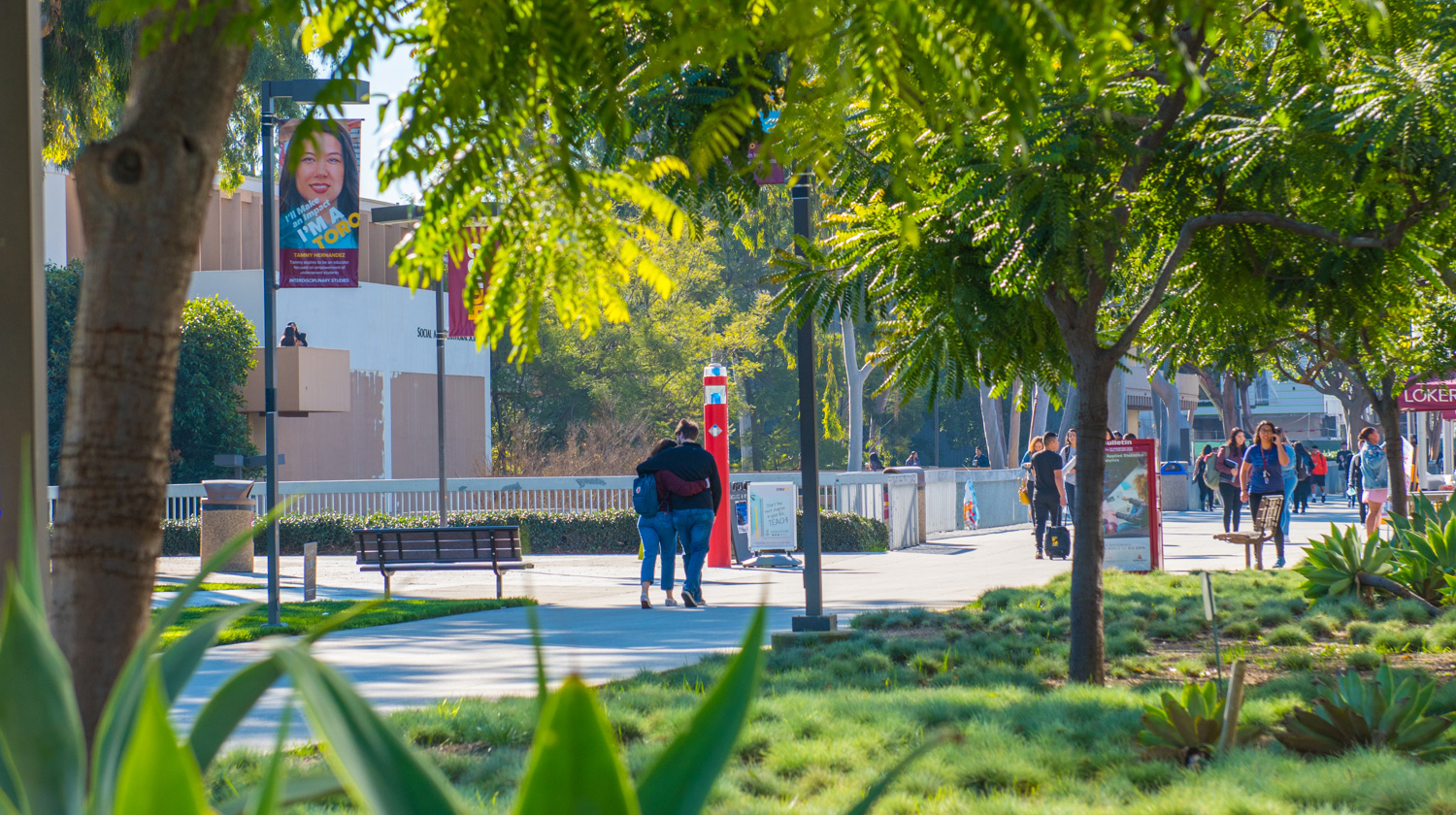 (Carson, Calif.) – California State University, Dominguez Hills (CSUDH) was honored with 2018 Tree Campus USA recognition by the Arbor Day Foundation for its commitment to effective urban forest management.
(Carson, Calif.) – California State University, Dominguez Hills (CSUDH) was honored with 2018 Tree Campus USA recognition by the Arbor Day Foundation for its commitment to effective urban forest management.
The Tree Campus USA program honors colleges and universities for excellent campus forest management and for engaging staff and students in conservation goals. Currently, there are 364 campuses across the United States with this recognition.
CSUDH achieved the recognition by meeting Tree Campus USA’s five standards: maintaining a tree advisory committee; developing a campus tree-care plan; dedicating annual expenditures for its campus tree program; hosting an Arbor Day observance; and creating a student service-learning project.
“It is truly an honor to be recognized by the Arbor Day Foundation, an organization with a long history of advocating for the protection of trees, and subsequently all the other species whose survival depend on healthy forests, both in natural and urban settings,” said Ellie Perry, sustainability coordinator/assistant energy analyst for CSUDH’s Office of Sustainability.
To manage the diverse variety of trees on the 346-acre campus, especially in light of four building construction projects under way or starting soon, CSUDH’s Sustainable Landscape Committee developed a comprehensive plan that committed the campus to a one-to-one tree replacement ratio for trees that need to be removed due to construction, pest infestation, and other issues. The committee also set a target to increase tree coverage on campus to 25 percent by 2025.
The university is actually exceeding its tree replacement ratio, Perry noted, and in some cases, non-native trees, such as Eucalyptus, are being replaced with water-wise and climate-resilient tree species.
“Our student population is growing, so new buildings are being built to accommodate the need for more state-of-the-art learning and living spaces,” said Perry. “The Sustainable Landscape Committee calculated how many trees will be planted as part of the new construction, versus how many we have to remove. When the work is done, we will actually have 50 more trees then we do now, many of which will be more environmentally friendly.”
The Sustainable Landscape Committee is also supporting student-run projects, including a Global Information System (GSI) tree mapping project with the Sustainability Club. The students are working with volunteers and entire classes to compile data related to each tree’s GPS coordinate, information on its health, and whether or not it shows signs of damage from invasive species.
“These GSI updates will be critical in effectively managing campus tree cover and help direct ground efforts to limit the spread of invasive pests such as the Polyphagous Shot Hole Borer, which has decimated large parts of Los Angeles County’s urban forest,” Perry explained.
CSUDH also hosts an annual tree planting ceremony during its Earth Day Festival. This year, a second citrus tree will be planted in the “Earth Day Grove.” As they grow, the fruit will be added to the university’s Urban Farm harvests, which are distributed to the Campus Dining Services Department, and food insecure students on campus.
The Arbor Day Foundation has helped campuses throughout the country plant thousands of trees, and Tree Campus USA colleges and universities invested more than $51 million in campus forest management last year.
“Tree Campuses and their students set examples for not only their student bodies, but the surrounding communities showcasing how trees create a healthier environment,” said Dan Lambe, president of the Arbor Day Foundation. “Because of your school’s participation air will be purer, water cleaner, and your students and faculty will be surrounded by the shade and beauty the trees provide.”